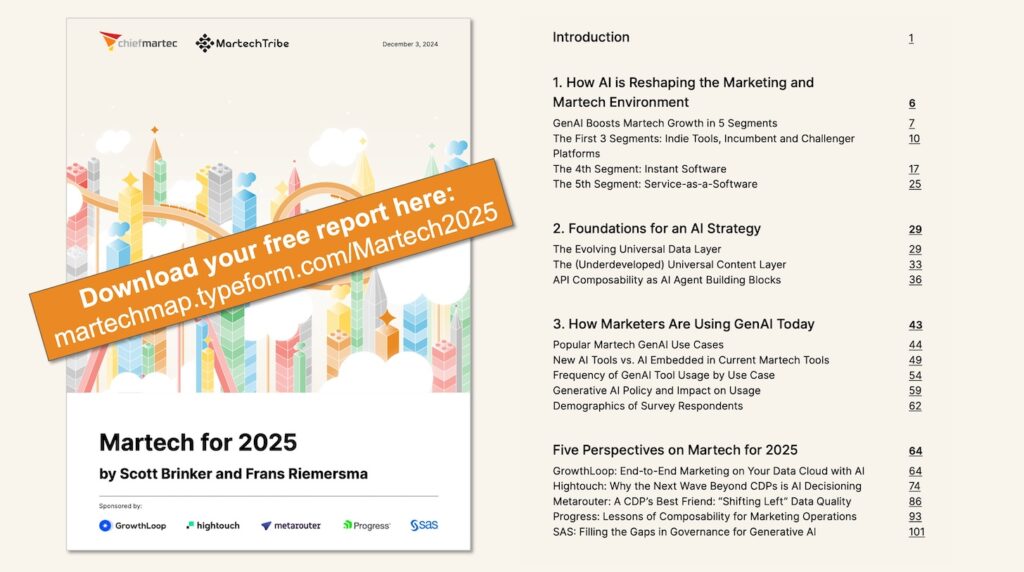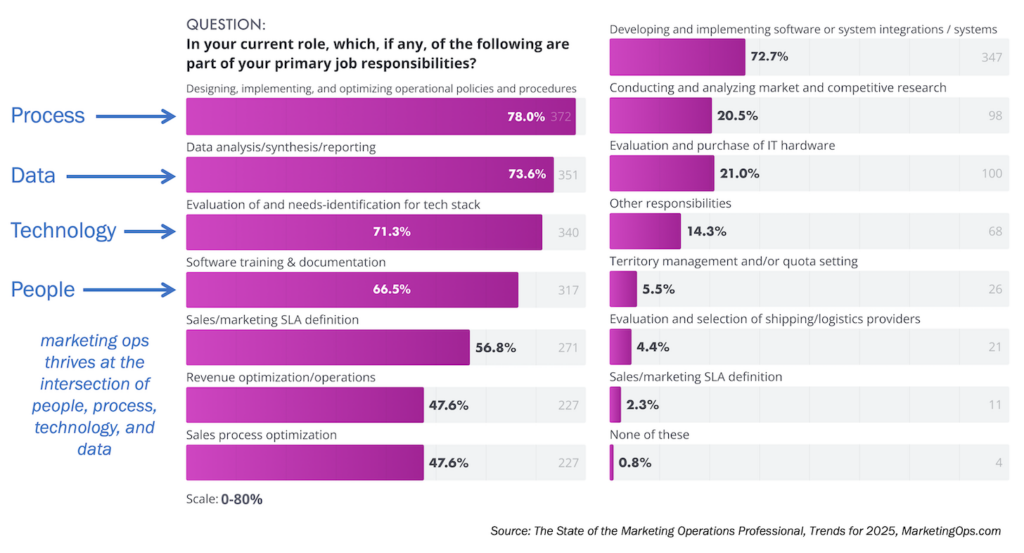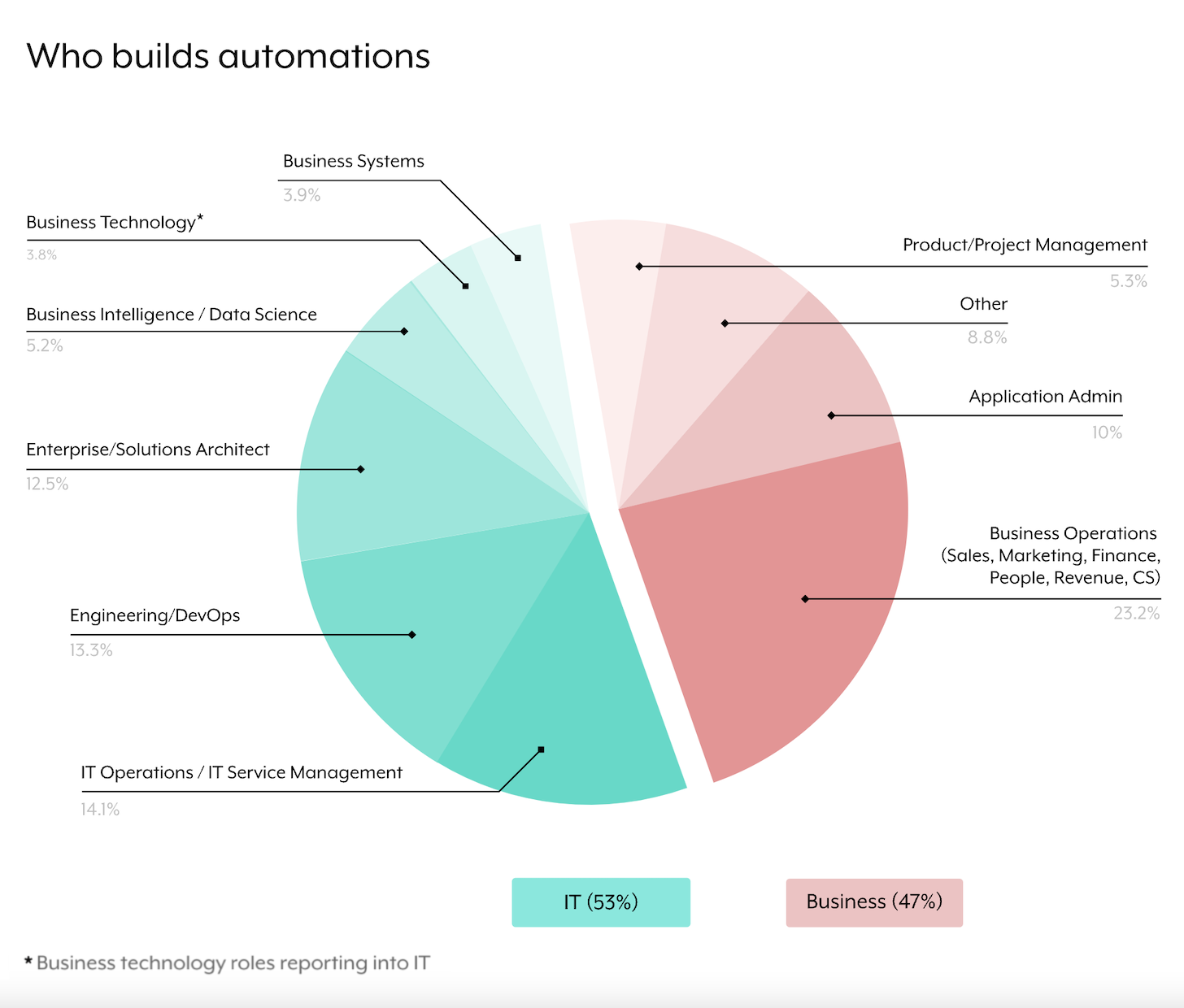
Apologies for the lull in posting. I took a long, much-needed family vacation — almost entirely digital-free. I’m now back in the saddle, recharged and reenergized about all that’s happening in martech. With a huge backlog of cool things to share with you.
Here’s the first…
Enterprise automation company Workato (disclosure: I’m an advisor to them) recently released their 2022 Work Automation Index. It’s not a survey, but rather the aggregated data from 900 of their midsize and enterprise customers from February 2021 to January 2022.
In other words, it’s the ground truth of what a very large sample of companies are actually automating. Hard empirical data, not soft biased opinions.
The first finding that leaped out to me is the chart at the top of this post. Nearly half (47%) of automations created on their platform were built by business users — not IT or engineering professionals.
This is about as resounding of an endorsement of the adoption of “no code” and decentralized technology enablement as one could ask for — all the more so because Workato’s customers are generally large businesses with strong IT departments, not scrappy, highly-fluid startups.
I love scrappy, highly-fluid startups, which have been the primary users of most “no code” platforms. But they often have much more freedom in how they hustle than an established enterprise. Some people have argued that such no-code, decentralized empowerment of non-IT pros would not work in a larger company with formal IT governance. This data from Workato pretty strongly rebuts that argument.
Indeed, it’s the burgeoning category of non-IT “business operations” pros — marketing ops, sales ops, revenue ops, CS ops, etc. — who are collectively building the largest number of automations (23.2%). Big Ops is thriving! This is in no small part because Big Ops teams help larger companies adapt with the kind of agility used by scrappy, highly-fluid startup competitors who are trying to disrupt them.
This isn’t just a marketing ops thing either.
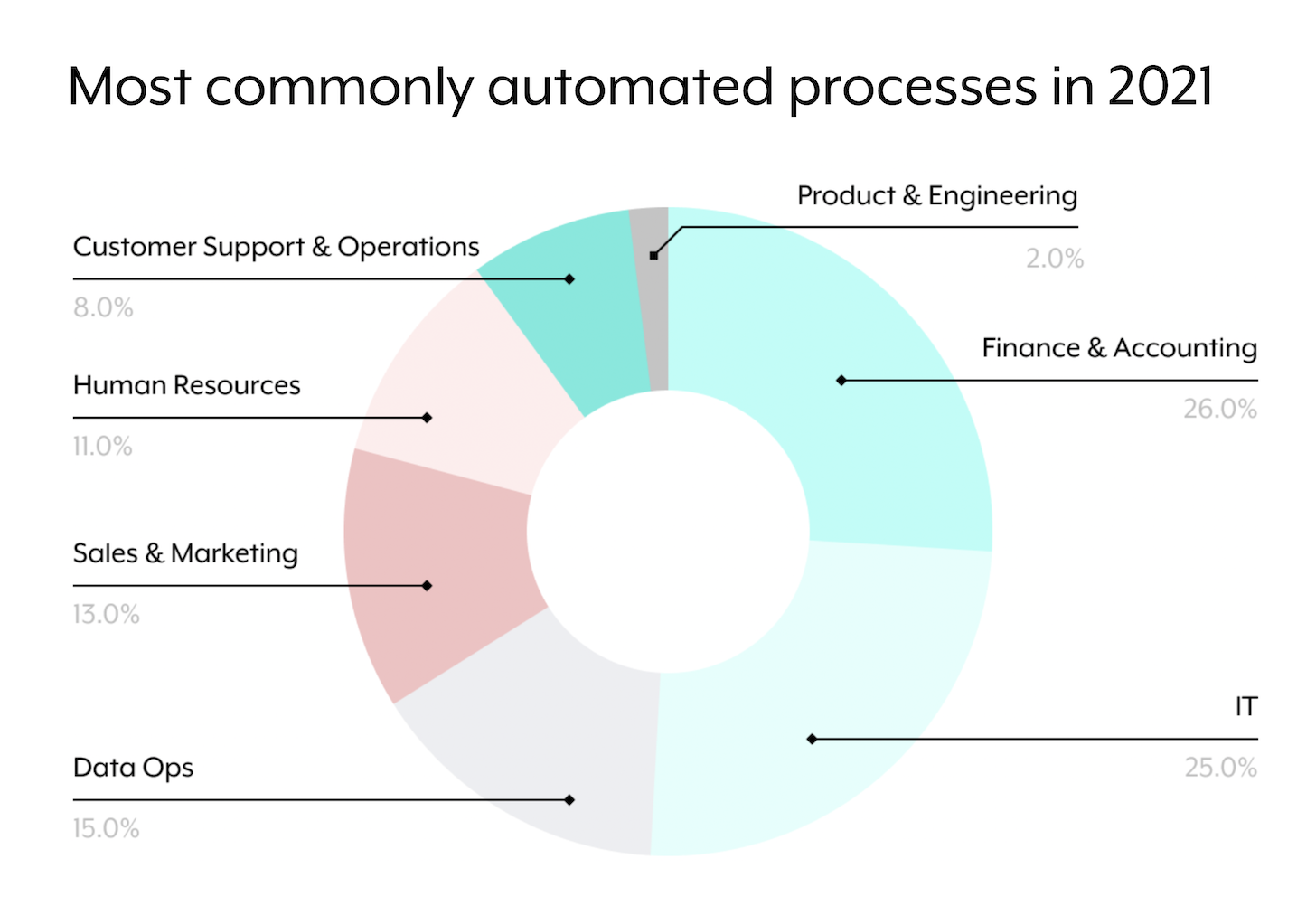
In fact, marketing and sales rank third in the departments leveraging automation. The largest number of automated processes in this index were for finance and accounting (26%). Sales and marketing had half as many (13%).
(Granted, this may be because Workato specifically has more adoption within finance and accounting, as well as IT. If you factor in all the automations that marketing ops and sales ops use in their CRMs and MAPs, they probably have more total automations. But the point is that this proliferation of business automation is not unique to marketing and sales.)
So what are marketing ops pros automating? Here are the high-level clusters:
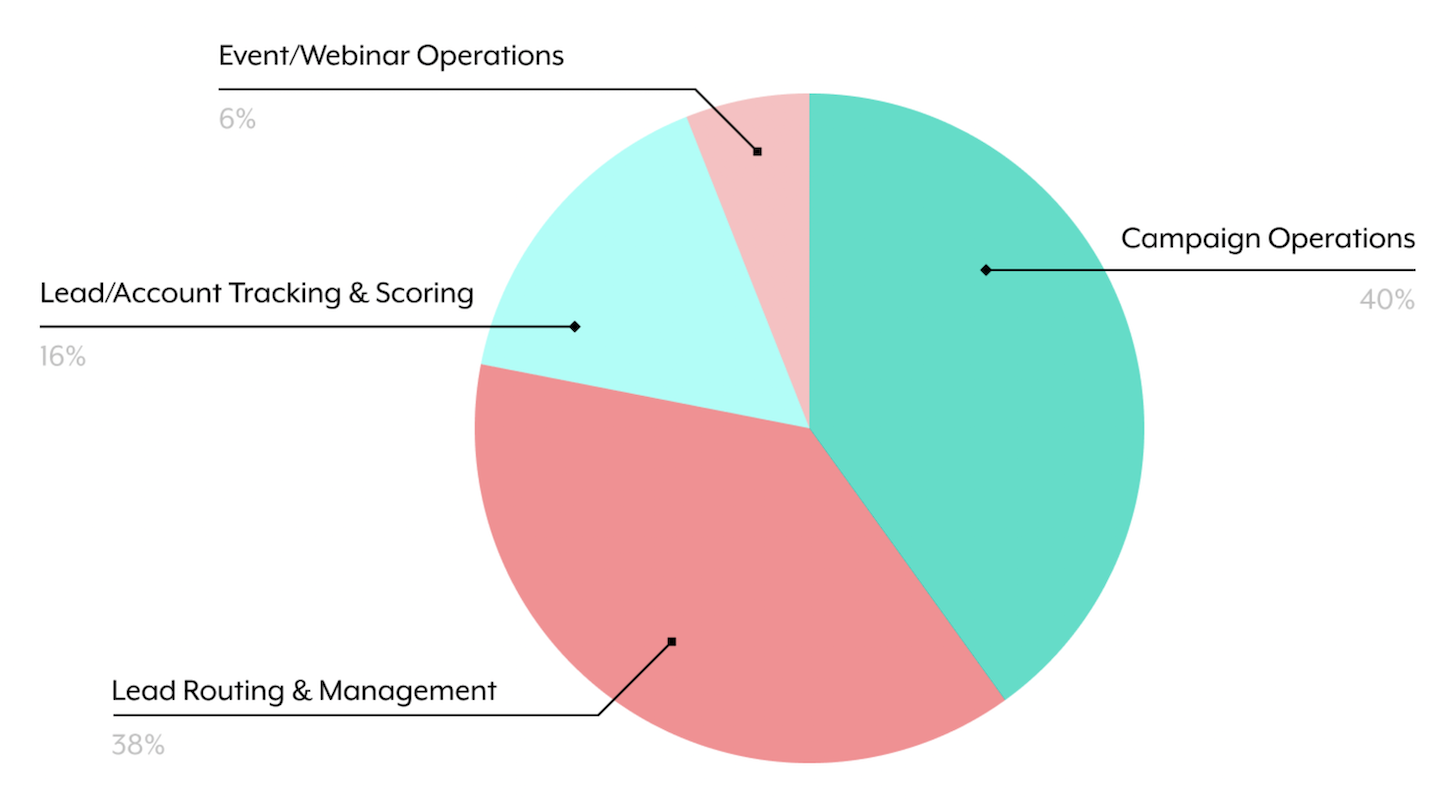
If campaign operations sounds a little too vague, Workato explains what’s included:
“Everything in a campaign not related to leads, including creative & copy approvals, file storage, and capturing performance data. It might mean connecting CRM systems, marketing apps, and project management tools, allowing teams to plan, execute, and measure the impact of campaigns. Automating campaign execution processes helps creative resources avoid data entry and campaign leaders remove manual steps from reporting.”
Curious about marketing ops’ cousins in sales ops and what they’re automating?
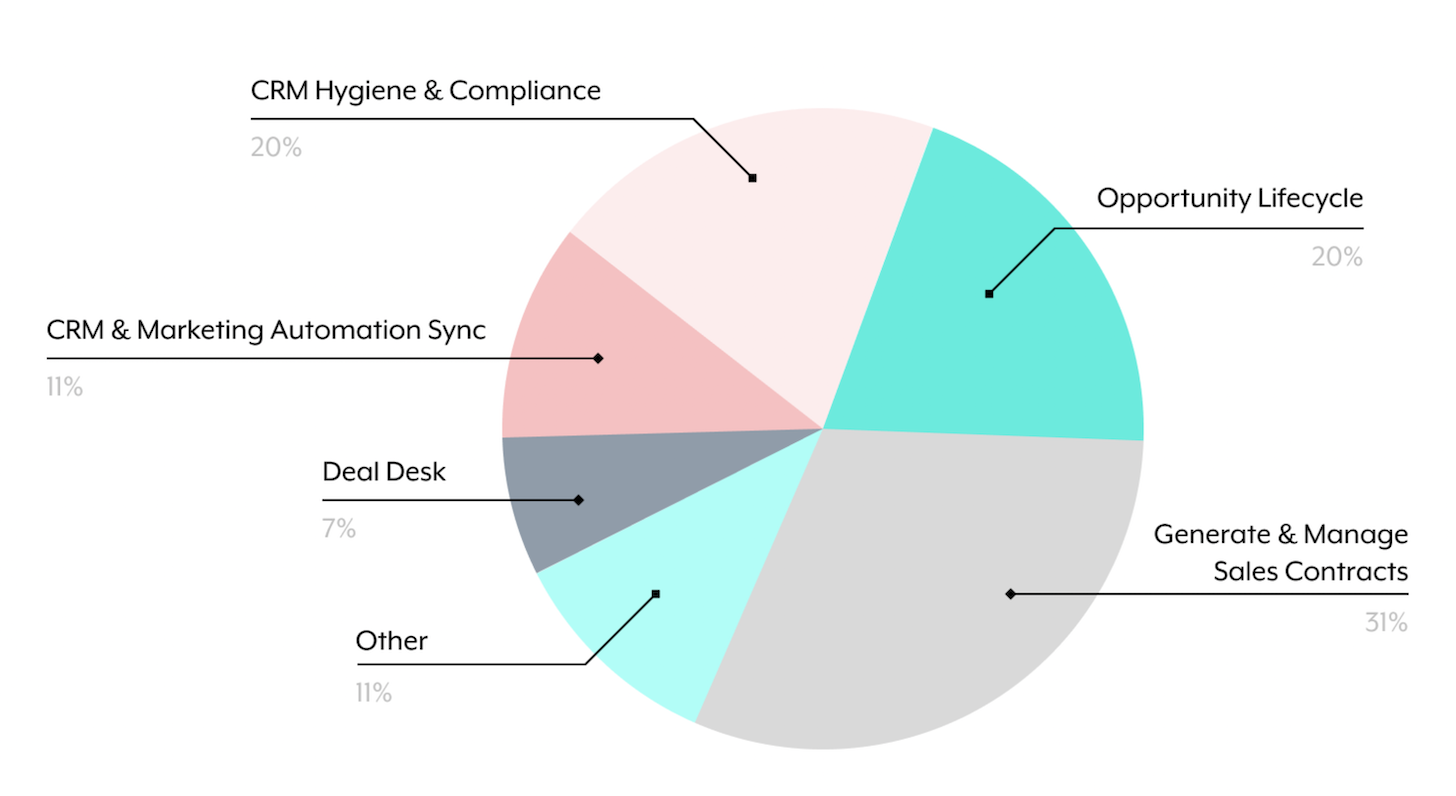
(I suspect that in a lot of companies, many of these “sales” automations are being run — or at least co-managed — by the marketing ops team. Or, in those organizations who have a combined revenue ops function, these neatly blend together under that umbrella.)
To close full circle, here’s one more fascinating stat from this report:
While across the entire business 47% of automations were built by business users (instead of IT), within marketing and sales that percentage jumped to 70%.
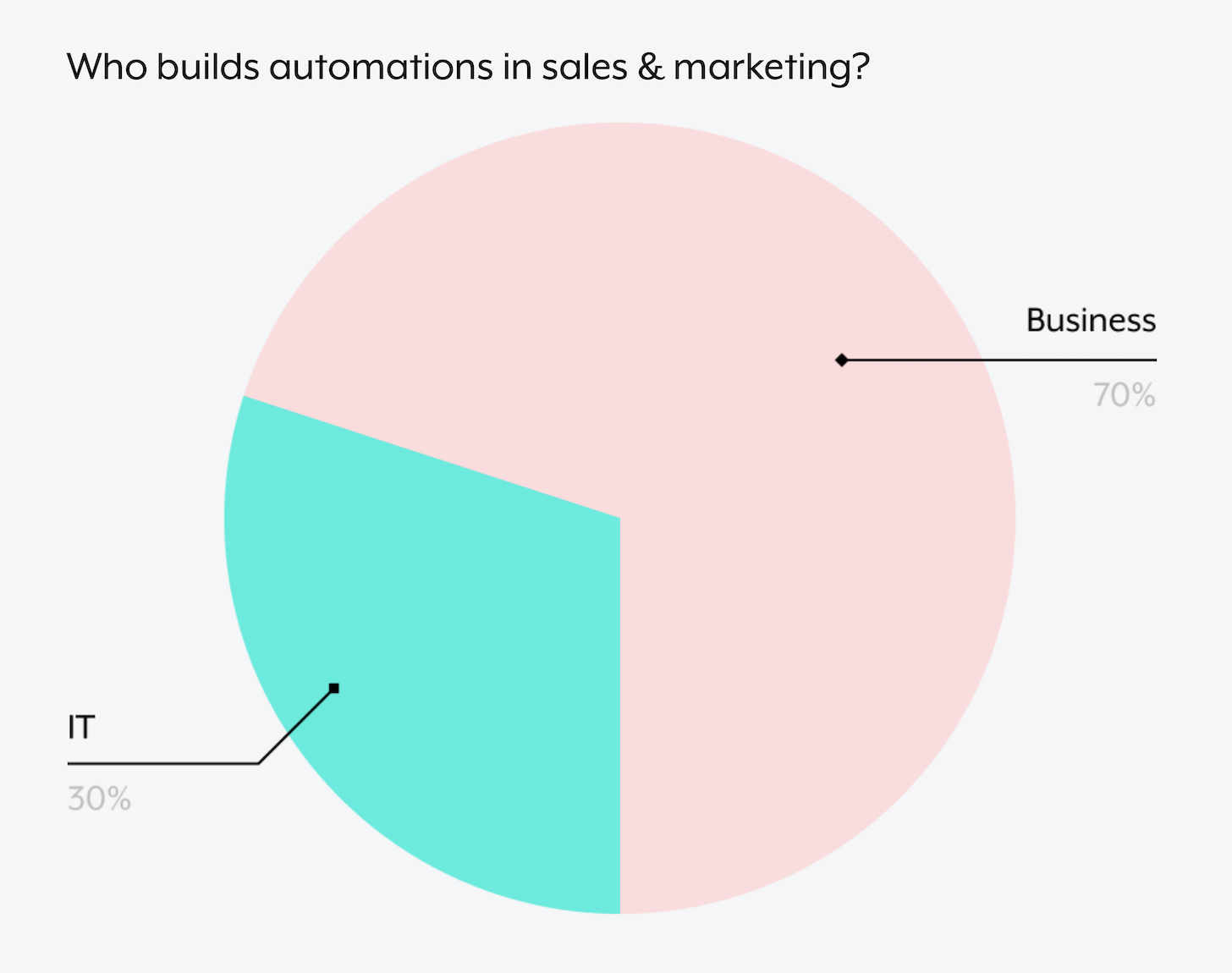
That’s one of the highest ratios of business-user builders to IT builders of any department — with the exception of customer success, where 72% of the automations are built by business users: hand-offs from sales to customer success, customer onboarding and training workflows, automated customer experience and NPS surveys, etc.
Marketing, sales, customer service: all teams where the processes being automated revolve around the customer journey and rely heavily on the domain expertise of ops leaders embedded within those departments.
This is Big Ops incarnate.

